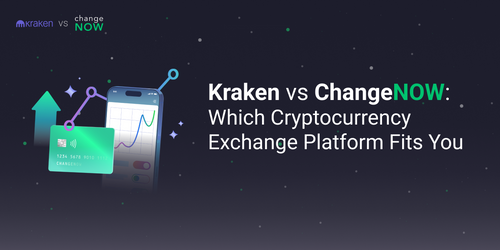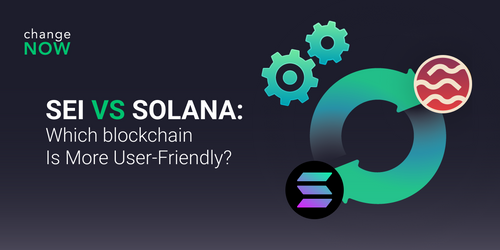What Is a Wallet Address?

Introduction
Wallet address is a unique alphanumeric string used to reference blockchain accounts similar to a bank account number. It enables an individual to make and receive payments in cryptocurrencies while remaining pseudonymous. Wallet addresses are generated using cryptographic processes from public keys for the purpose of protecting the users from unwanted individuals and keeping them secure and protected. Since transactions on the blockchain are irreversible, wallet address authentication is a procedure that one cannot afford to neglect in a bid to prevent fund loss.
Key Takeaways
- ✅ A wallet address is a unique identifier for cryptocurrency transactions.
- ✅ It can be traced from a public key but doesn't reveal the accompanying private key.
- ✅ Different blockchains contain different wallet address formats.
- ✅ Incorrect wallet address can result in irreversible loss of funds.
- ✅ Double verification of addresses and the utilization of a QR code prevent mistakes.
What is a Wallet Address and How Does it Work?
Wallet address is a special identifier on the blockchain consisting of randomly selected letters and numbers. It is a receiving crypto wallet address where funds are transferred and received online in a secure manner.
Similar to an email address, it contains sufficient information to transfer money to the intended person without revealing sensitive information. Unlike typical banking information, however, crypto wallet addresses do not contain personal information and maintain the user anonymous.
The wallet addresses themselves also vary for different blockchains, and as such, Bitcoin, Ethereum, and other holdings have distinct address formats. Being irreversible, Blockchain transactions, so getting the recipient's wallet address correctly is paramount before transferring money to avoid errors and loss.
Public Key and Private Key Relationship
Private and public keys are a set of keys in asymmetric cryptography that encrypt the blockchain. The public key is derived mathematically from the private key by using complex mathematical algorithms, making it possible for users to create wallet addresses for receiving payments. The operation is reversible, however, and one cannot reverse-engineer a private key from a public key. This is possible only by the rightful owner, who holds the private key, authorizing transactions and withdrawal.
A public key may safely be shared, for it cannot be employed in breaching security, but the private key never to be shared. Exposed, unauthorized access to a crypto wallet is enabled, leading to loss of funds.
In brief:
- Public Key – Made publicly available to obtain transactions.
- Private Key – Must be kept confidential because it grants access to funds.
Why Are Wallet Addresses Important?
Wallet addresses matter to cryptocurrency transactions and blockchain security in that they are the sole user identifier on the blockchain. Similar to how a checking account has an account number at a brick-and-mortar bank, wallet addresses ensure the funds are deposited and withdrawn securely. Without them, it would be nearly impossible to safely verify accounts and process transactions.
Such addresses are essential for reaching decentralized applications (dApps) and smart contracts so as to make contact easily with services in the blockchain. Since blockchain transactions are everlasting and irreversible, the correct input wallet address averts expensive errors.
In addition, wallet addresses create a gateway to digital asset management, where the users can store, send, and withdraw cryptocurrencies without exposing their private keys. Their randomly generated format offers better security, as it reduces duplication or fraud risks. Lastly, wallet addresses foster a secure and efficient digital economy within the blockchain system.
Ownership of Digital Assets
Ownership of digital assets relies on private keys, which give full control of cryptocurrency funds. In self-custody, users have their own private keys, with full control over their money. This approach provides enhanced security but requires proper key management not to misplace them.
On the other hand, custodial wallets, often provided by centralised exchanges, keep private keys for the user. This is easy but grants authority of the private keys to another entity, and the user isn't in charge of their funds. If a hacker hacks into an exchange, the money is gone.
It's private keys that really confirm actual ownership, and thus self-custody is the safest means of holding digital funds.
Different Types of Wallet Addresses
Wallet address types vary from block to block with their own design and functionality. They perform the storing, receiving, and sending of tokens. While certain token standards, such as ERC-20 on Ethereum, allow for token compatibility across a range of blockchains, each network's address design is unique in order to maximize security and transaction processing.
For instance, Bitcoin addresses start with a "1" or a "3," while Ethereum uses a 42-character hexadecimal value. Despite these variations, shared standards ensure interoperability and the tokens are exchangeable between compatible systems. An understanding of such variations is important to seamless transactions and interoperability of blockchain networks.
Bitcoin Wallet Addresses
Bitcoin wallet addresses have changed with evolving technologies for more efficient transactions and reduced fees. The initial format, P2PKH (Pay-to-PubKey-Hash), is the Legacy address, and it begins with a "1." As the network of Bitcoin enhanced, P2SH (Pay-to-Script-Hash) addresses became accessible with better compatibility and begin with a "3."
SegWit addresses, which are in the Bech32 format, begin with "bc1" and offer faster transactions and lower fees. The most recent enhancement, Taproot, is designed to improve privacy and smart contract efficiency. Both systems serve specific needs within Bitcoin's evolving ecosystem toward a more efficient and cheaper network.
Ethereum Wallet Addresses
Ethereum wallet addresses start with "0x" and must be used to interact with Ether blockchain, ERC-20 tokens, and smart contracts. The addresses, typically 42 characters, facilitate direct transactions and perform decentralized applications (dApps) on the Ethereum platform.
Because of the Ethereum Virtual Machine (EVM), the addresses are also compatible on other EVM-based chains, and assets can be transferred and smart contracts interacted with on compatible chains without a middleman. This compatibility makes Ethereum addresses an integral part of the entire decentralized ecosystem.
Other Blockchain-Specific Wallet Addresses
In case of other cryptocurrencies such as Litecoin, Ripple, and Cardano, it's also important to input the proper format of each of their wallets. Litecoin wallets will start with the letters "L" or "M," while Ripple will begin with the letter "r" and Cardano will employ the "DdzFF" or "addr1" prefix. Incorrect input formats can lead to lost or redirected funds. It's always wise to use the right address format to preserve security and have smooth transactions.
Common Wallet Address Mistakes
In working with wallet addresses, the user makes a number of mistakes that might have disastrous implications, including a loss of money permanently. Here are some normal mistakes to avoid:
- Mistyped Address: Character omissions or spelling mistakes from the address mean sending money somewhere else.
- Format Incompatibilities: Sending in the wrong format for a particular blockchain, i.e., getting Litecoin, Ripple, or Cardano addresses mixed up, can result in invalid transactions.
- Sending to Nonexistent Addresses: Sending funds to addresses which do not exist or of which the blockchain does not recognize will cause failure in the transaction and result in a loss of funds.
- Copy-Paste Errors: Accidental copying of an address, either by leaving out a character or copying the first half, will send your funds to the wrong wallet.
- Double-Verification Failure: Failing to double-verify the address before sending a transaction can lead to sending money to a wallet instead of the intended wallet.
How to Avoid Mistakes
Wallet address mistakes should be avoided in order to secure a transaction. Here are some best practices for avoiding costly mistakes:
- Double Verify Addresses: Always double check the full address before a transaction confirmation. A single character out of place can result in loss of funds.
- Test Transaction: Send a little amount first and then send a large one to verify the address.
- Employ QR Codes: Scanning of QR codes decreases typos' probability and ensures correct address input.
- Copy-Paste with Caution: Be cautious while pasting the address since malware might replace it with a false one.
- Verify Format Compatibility: Ensure the address format is compatible with the destination blockchain (e.g., Litecoin, Ripple, Cardano).
With these precautions in place, you can successfully reduce the likelihood of sending money to an incorrect address and enhance transaction security.
Safety Tips for Managing Wallet Addresses
Protecting your wallet addresses is important to securing your assets from theft and loss. We share the best security practices:
- Enable Two-Factor Authentication (2FA): A second layer of security prevents unauthorized wallet access. Always utilize a secure authentication app instead of SMS-based 2FA.
- Secure Your Private Key: Never give anyone a copy of your private key. Store it offline, i.e., in a hardware wallet or encrypted file storage.
- Avoid Phishing Attacks: Never click on suspicious links or enter your wallet credentials into unknown websites. Scammers make lookalike websites exactly like reputable wallet providers.
- Use Solid Wallets: Use reputable and well-established wallet providers with strong security and updates.
- Regularly Back Up Your Wallet: Keep multiple copies of your seed phrase in safe locations to reinstate access when needed.
- Verify Website and App Authenticity: Download wallets only from authentic websites and confirm URL authenticity to not fall prey to spurious websites.
- Use a Hardware Wallet for Large Funds: A hardware wallet offers an extra layer of security while handling large cryptos.
By using these protections, you can reduce the risk of unauthorized access and protect your funds.
Concluding Thoughts on Wallet Addresses
Wallet addresses are the backbone of the blockchain network, and they serve as an identifier for secure storage and exchange of digital currency. Whether Bitcoin or Ethereum, or any other cryptocurrency, knowledge about wallet address structures and security features is necessary to avoid expensive mistakes.
By embracing best practices — private key security, two-factor authentication, and address verification — you can provide high-end security to your transactions. Moreover, by using test transactions and QR codes, accuracy is ensured with lesser risks.
Since blockchain technology is still in its developing phase, being well-informed and cautious with your wallet addresses will ensure your digital cash is secure and allow for easy, hassle-free transactions. Never compromise on security and confirm each transaction to lock your funds.
FAQs
Is it safe to share your wallet address?
Yes, it is okay to share your wallet address, as it can be utilized by others to send money only. It does expose your transaction history on public blockchains, though, so privacy is involved. Don't make it publicly available to avoid phishing or scamming attempts.
Can I have more than one digital wallet?
Yes, a single person can use more than one digital wallet to suit different objectives or cryptocurrencies. Having several wallets enhances security as it distributes the risk, simplifies organization, and makes funds management across numerous blockchain networks more convenient.
Is it illegal to have multiple crypto wallets?
Yes, it's absolutely legal to possess over one crypto wallet. People prefer to have wallets separate for security, trading, and for long-term storage.
Governments also force know-your-customer checks for certain wallets but impose no maximum on the number of wallets an individual can maintain.
How is a wallet address generated?
A wallet address is generated from a public key via cryptographic functions exclusively. The wallet will initially generate a key pair — a private key and a public key — before using the public key to generate the address by a unique hash function of the blockchain network.





